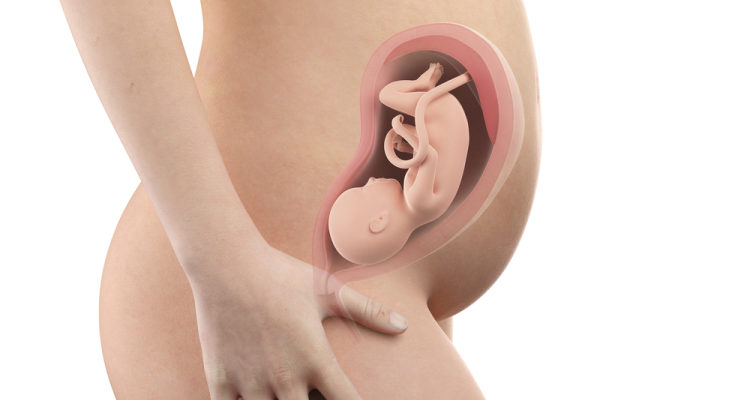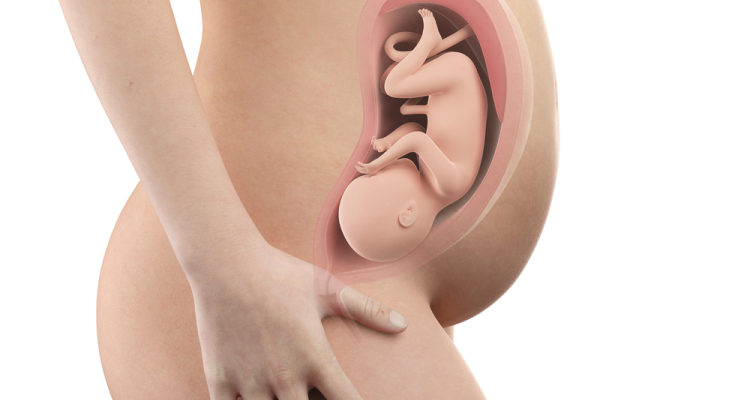Week 9

Many pregnant mothers wonder how their 9-week-old fetus has developed. So let's explore with aFamilyToday Health now!
Although tubal ligation is effective at preventing fertility, pregnancies still emerge after this method has been followed.
Ms. Thanh Ha (36 years old) has applied a tubal ligation procedure and is confident that she will not have a baby. Yet a few months ago, she showed signs of pregnancy. Strangely, she bought a pregnancy test and the result was two lines. She was so confused so she went to the doctor to check for sure. As a result, she was really pregnant. So where is the reason? Let's find out with aFamilyToday Health .
Tubal ligation is an option for women who don't want to have another baby. This procedure involves constricting or cutting the fallopian tubes, which prevent an egg released from the ovary from moving to the uterus, where it can be fertilized.
According to the report, 1 out of every 200 women who have a tubal ligation procedure can become pregnant. Tubal ligation can increase your risk of an ectopic pregnancy. This is when eggs are fertilized, instead of going to the uterus to nest here, it attaches to the fallopian tube. An ectopic pregnancy is very dangerous and requires prompt intervention to not affect the mother.
When the doctor performs surgery, the uterine tube will be tied by tying and severing. Can be tied by electric burning, using a metal pair, clamping or tying with a ring. However, if the fallopian tubes grow back and attach to each other, a woman is still able to conceive.
The younger a woman is, the more likely a woman is to have a baby again after having a tubal ligation procedure. According to the study, the rates of pregnancy after tubal ligation are:
Women under 28 years: 5%
Women aged 28 - 33 years: 2%
Women over 34 years: 1%
In Ms. Ha's case, after the tubal ligation procedure, she discovered she was pregnant. The reason for this is because a fertilized egg can attach to the uterus before the procedure. As a result, many women choose to have their fallopian tubes tied at times of low fertility such as immediately after birth or right after menstruation.
If the fallopian tubes grow again after ligation, you will likely be pregnant as if you were not. Some women wish to connect the fallopian tubes together to get pregnant, but this method is not always effective. Signs of pregnancy include:
Breasts are tender and swollen
Appetite
Late period
Nausea, especially in the morning
Fatigue doesn't know the cause
Frequent urination.
If you think you are pregnant, you can use home pregnancy tests as well as visit the ultrasound clinic to confirm.
If you've had pelvic or tubal ligation surgery before, you may be at risk of an ectopic pregnancy. Symptoms related to ectopic pregnancy initially look like a normal pregnancy. For example, if you have a pregnancy test, the result is still positive (2 bars). However, if the fertilized egg does not attach to the proper place to develop, the pregnancy cannot continue but must be destroyed. In addition to the typical symptoms, ectopic pregnancy also has signs such as:
Stomachache
Mild vaginal bleeding
Pelvic pain
The pelvis feels heavy especially when you are having a bowel movement.
The above symptoms should not be ignored as ectopic pregnancy can cause fallopian tube rupture, internal bleeding leading to fainting and shock. Get to the hospital right away if you have:
There is a feeling of wanting to faint
Severe pain in the pelvis and stomach
Vaginal bleeding
Shoulder pain.
If your doctor determines that the pregnancy is ectopic but in an early stage, they can prescribe a methotrexate drug for you to take. This medication is intended to prevent the eggs from growing or causing bleeding. Your doctor will check levels of hCG , the hormone associated with pregnancy. When the method above doesn't work, you'll need surgery to remove the pregnancy tissue. Your doctor will try to repair the fallopian tubes. If this is not possible, the doctor will remove the fallopian tube.
Many pregnant mothers wonder how their 9-week-old fetus has developed. So let's explore with aFamilyToday Health now!
11 weeks fetus, baby's face continues to develop, mainly in the ear area, the head is about half the length of the body.
The development of the fetus changes with each stage. aFamilyToday Health shares with you everything you need to know about your 24-week-old fetus.
29 weeks pregnant will be the time when the mother is 7 months pregnant. During this time, the baby has reached a certain level of development in size, weight ...
The 33-week-old fetus was able to hear, feel and even see some. Baby can also dream at this stage!
Pregnant mothers often worry during labor. 3 exercises aFamilyToday Health will help pregnant mothers prepare for psychology and good health when pregnant women are in labor.
Learning about the effects of abortion on aFamilyToday Health tells you the link between abortion and its potential risks and when it is safe to get pregnant again.
How do mothers elect vitamin D supplements? Please share from an expert at aFamilyToday Health to know food sources and when to supplement this vitamin.
Join aFamilyToday Health to learn about eggs and sperm, how they meet, and about conception and the formation of the fetus.
aFamilyToday Health - A post about the breast changes of pregnant women and how to help you overcome the discomfort of these changes.








